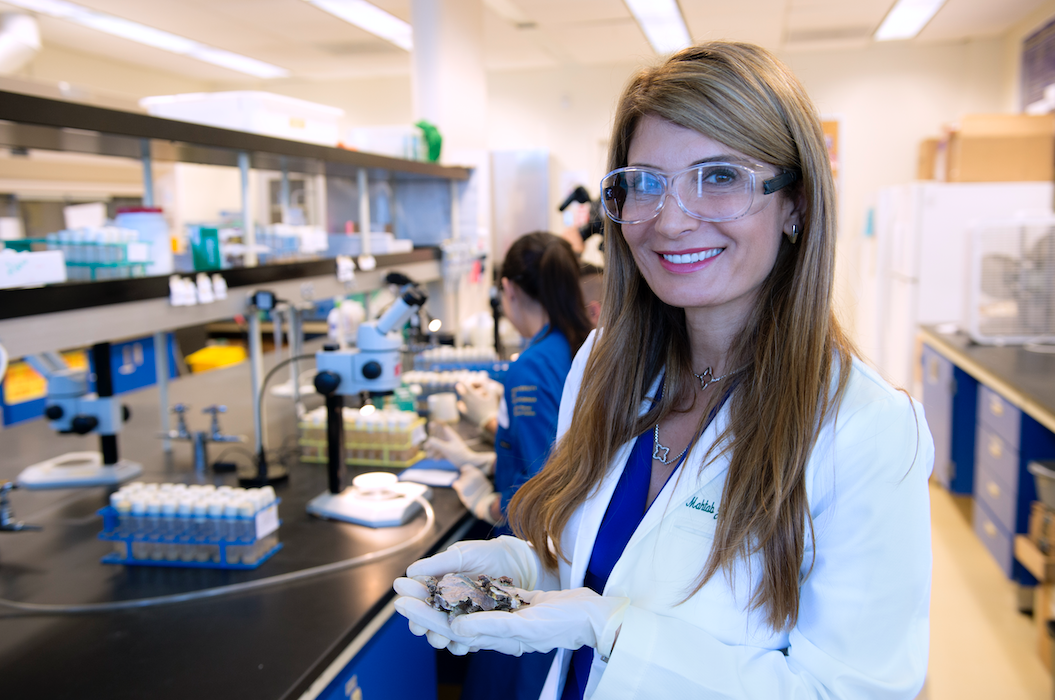
In a study published in Rejuvenation Research, Dr. Mahtab Jafari found that while an ancestral diet, consisting of apples, and botanical extracts (Rhodiola rosea and Rosa damascene) can both increase lifespan and improve healthspan individually, they actually decrease lifespan when combined.
For the past 15 years, Dr. Jafari has focused her research on aging and healthspan sciences, which she defines as “the study of adding healthy years to human life.” This study involves a collaboration between two different disciplines: evolutionary biology and pharmaceutical sciences. Studies in evolutionary biology have demonstrated that the ancestral diet for fruit flies, which is an apple diet, increases lifespan and improves healthspan. In previous pharmaceutical studies, Dr. Jafari discovered that the use of the dietary supplement Rhodiola rosea increased the lifespan of fruit flies by 25%, this increase in lifespan was found to be significant. The Jafari Lab uses fruit flies as their model system because humans share about 75 percent of their disease genes with flies which allows researchers to test the impact of pharmaceuticals, and thus botanicals, on health.
This study examines whether a combination of ancestral diet (apple diet for fruit flies) and supplementation (Rhodiola rosea or Rosa damascena) would result in a beneficial effect on fruit fly healthspan. The findings demonstrate that the combination does not result in further improvement. In fact, when combined, diet and supplementation may become toxic and have detrimental effects.
“The results of this study may serve as the foundation of future human studies on the safety of combining dietary supplements,” says Dr. Mahtab Jafari, “Every year, about 20,000 emergency department visits are due to dietary supplements. During the past two decades, US poison-control centers have received about 275,000 reports of people who reacted badly to supplements; a third of them were about herbal remedies.”
Dr. Jafari also highlights the instrumental role of her former UCI undergraduate student, Howard J. Phang, in completing this research project: “Howard was a Pharmaceutical Sciences student in my lab for all four years of his undergraduate degree. It was really Howard’s resilience, organizational skills, and critical mind that took us to the finish line.” Also contributing to the study were Grant A. Rutledge, Michael N. Le, Linsey Bui, Michael R. Rose, Laurence D. Mueller and the Rose and Mueller laboratories.
“Overall, this paper demonstrates that both a diet and pharmaceutical approach will need to be used to improve lifespan. The trick will be to find the right combinations,” says Grant Rutledge. Furthermore, the study illustrates how too much of a good thing isn’t always a good thing.
To read the full study, visit this site.
To learn more about the Jafari Lab click here.
By: Nedda Bozorgmehri — School of Pharmacy and Pharmaceutical Sciences
